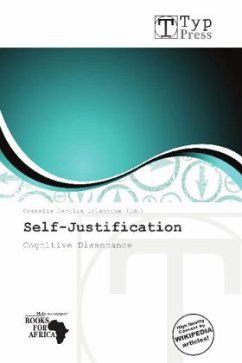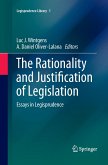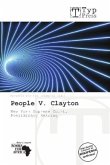Self-justification describes how, when a person encounters cognitive dissonance, or a situation in which a person's behavior is inconsistent with their beliefs, that person tends to justify the behavior and deny any negative feedback associated with the behavior.The need to justify our actions and decisions, especially the ones inconsistent with our beliefs, comes from the unpleasant feeling called cognitive dissonance (Festinger, 1957). Cognitive dissonance is a state of tension that occurs whenever a person holds two inconsistent cognitions. For example, "smoking will shorten the life which I wish to live for as long as possible" and yet "I smoke three packs a day".
Bitte wählen Sie Ihr Anliegen aus.
Rechnungen
Retourenschein anfordern
Bestellstatus
Storno








